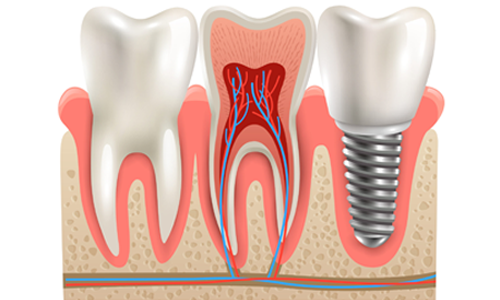How long does a Root Canal Treatment last?
Root canal treatment is a common dental procedure performed to salvage a deeply infected or damaged tooth,
preventing extraction and preserving oral health. Understanding the intricacies of this treatment and its
lasting effects is essential for individuals undergoing or contemplating this procedure.
The procedure of Root Canal Treatment
The process typically involves several steps. Firstly, the dentist numbs the area before accessing the
infected pulp through an opening in the tooth. Then, the infected tissue is removed, and the space is cleaned
thoroughly. After disinfection, the tooth is sealed to prevent further contamination. The duration of this
procedure can vary depending on the tooth's complexity and the severity of the infection, ranging from one to
three sessions.

Factors Influencing the Longevity of a Root Canal Treatment
Several factors influence how long a root canal treatment lasts. The quality of the procedure, maintenance
of
oral hygiene, and proper restoration post-treatment play crucial roles in its longevity. A well-executed
treatment coupled with good oral care significantly increases the lifespan of the treated tooth.
How Long Does a Root Canal Treatment Last?
On average, a successful root canal treatment can last a lifetime. However, the longevity may vary based on
individual factors such as oral hygiene, chewing habits, and the tooth's condition before the procedure.
Proper care and regular dental check-ups are essential to prolong the tooth's life post-treatment.
Signs of a Successful Root Canal
Indicators of a successful root canal treatment include the absence of pain, swelling, or sensitivity around
the treated tooth, demonstrating effective healing and restoration of normal function.
Care After a Root Canal Treatment
Post-treatment care involves following the dentist's instructions meticulously, including maintaining proper
oral hygiene, avoiding hard or sticky foods, and attending scheduled follow-up appointments to ensure the
tooth's health and stability.
Myths and Misconceptions
Several myths exist regarding root canal treatments, such as the belief that they cause illness or are
excruciatingly painful. However, advancements in dental technology have made the procedure relatively
comfortable and highly effective in preserving natural teeth.






